Get Disability Renovation in Seattle, WA
Disability renovation services help Seattle-area property owners modify homes to improve accessibility, such as installing ramps, widening doorways, or creating accessible bathrooms.
Disability renovation services can be an essential consideration for property owners in Seattle, WA, seeking to improve accessibility and safety within their homes or commercial spaces. Planning a renovation project involves evaluating various options and understanding the specific modifications that can enhance mobility and independence. Comparing local contractors who specialize in these types of renovations can help ensure the work aligns with individual needs and property requirements, providing practical solutions tailored to the unique environment of Seattle.
Exploring different service providers in the area allows property owners to find experienced professionals capable of handling diverse renovation projects. Whether updating doorways, modifying bathrooms, or installing accessible features, it’s important to consider local options that understand the regional building codes and standards. Continuing to read can provide useful insights into how to approach planning a renovation, and how to connect with qualified contractors who can assist in making accessible improvements.
- Bathroom Renovations - needed when existing bathrooms in Seattle neighborhoods like Capitol Hill or Ballard require accessible features for mobility.
- Kitchen Modifications - suitable for homeowners in areas such as West Seattle or Queen Anne seeking to improve kitchen accessibility.
- Entryway Alterations - important for residents in neighborhoods like Fremont or South Lake Union needing ramps or wider doorways.
- Bedroom Accessibility Updates - required when bedrooms in homes across Bellevue or Kirkland need to accommodate mobility devices.
- Living Space Renovations - necessary for creating more accessible living areas in homes throughout Tacoma or Everett.
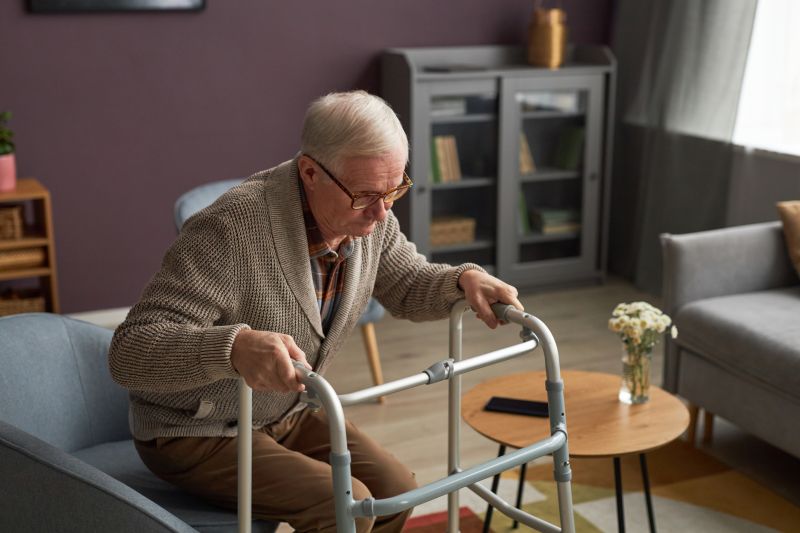
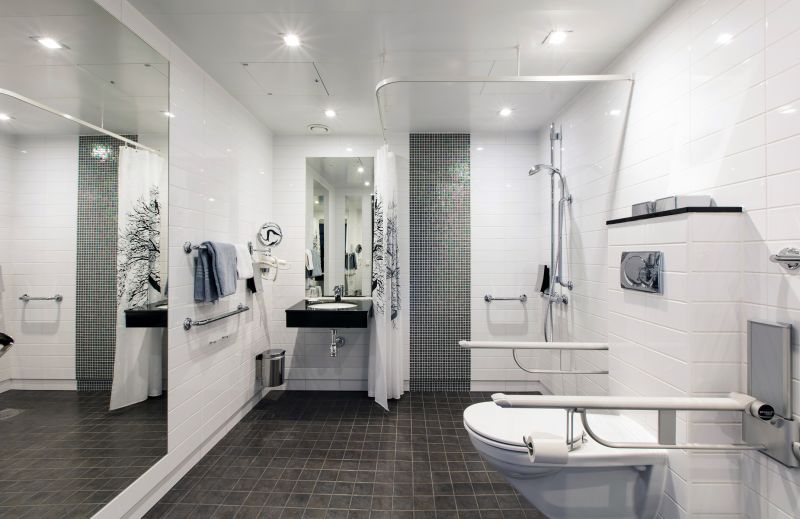
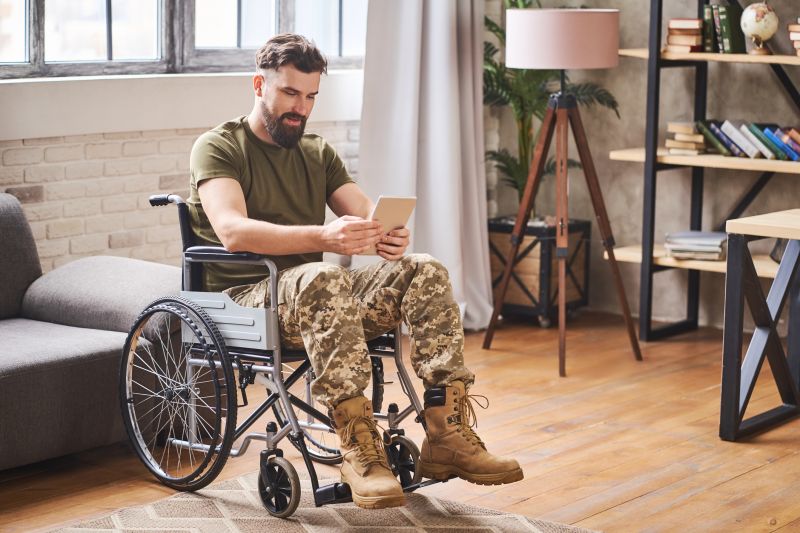
Disability renovation services focus on modifying homes to improve accessibility and safety for individuals with mobility challenges or other disabilities. These renovations often include installing ramps, widening doorways, lowering countertops, and adding grab bars or handrails. The goal is to create a living environment that allows for easier movement and reduces the risk of falls or injuries. Local contractors who specialize in these modifications can help assess a property’s needs and implement practical solutions tailored to each homeowner’s requirements.
These services address common problems faced by those with limited mobility or other physical limitations. For example, stairs can become barriers, making it difficult to access different levels of a home. Narrow doorways may prevent the use of wheelchairs or walkers, and bathrooms may lack safety features like grab bars or walk-in showers. By making targeted adjustments, disability renovation services help homeowners maintain independence and improve daily living comfort. These modifications can also be essential for aging in place, allowing residents to stay in their homes longer as their needs change.
Homes that typically benefit from disability renovation services include single-family houses, apartments, and condominiums. Any property with multiple levels or standard layouts that do not accommodate mobility aids may require modifications. These services are also useful in properties where family members or caregivers need to assist with mobility or safety features. Whether a residence is new or older, local service providers can adapt existing structures to meet accessibility standards and personal needs, making the home safer and more functional.
Disability renovation services are a practical solution for homeowners seeking to improve accessibility and safety. They help solve problems related to mobility restrictions, safety hazards, and layout limitations. These modifications are applicable to a wide range of property types, from standalone houses to multi-unit buildings, ensuring that more residents can live comfortably and independently. Connecting with experienced local contractors can provide the expertise needed to evaluate and implement effective home improvements tailored to individual needs.
The overview below groups typical Disability Renovation projects into broad ranges so you can see how smaller, mid-sized, and larger jobs often compare in Seattle, WA.
In many markets, a large share of routine jobs stays in the lower and middle ranges, while only a smaller percentage of projects moves into the highest bands when the work is more complex or site conditions are harder than average.
Smaller Repairs - routine modifications like grab bar installation or threshold adjustments typically cost between $250 and $600. These projects are common and often fall within the middle of this range. Local contractors usually handle these jobs efficiently and affordably.
Medium Upgrades - more extensive modifications such as wheelchair ramps or bathroom modifications generally range from $1,000 to $3,500. Many projects in this category are of moderate complexity and can vary based on specific needs and home layout.
Full Bathroom Renovations - complete bathroom remodels tailored for accessibility often cost between $8,000 and $15,000. Larger, more complex renovations can reach $20,000+, though most fall within the mid to high end of this range.
Full Home Renovations - comprehensive accessibility upgrades for entire homes can start around $50,000 and go well above $100,000 for extensive work. These projects are less common and typically involve significant structural changes and custom features.
Actual totals will depend on details like access to the work area, the scope of the project, and the materials selected, so use these as general starting points rather than exact figures.
Bathroom Accessibility Renovations - local contractors can modify bathrooms to improve safety and ease of use for individuals with mobility challenges, utilizing similar planning and construction skills.
Kitchen Modifications for Disabilities - service providers can adapt kitchen layouts and install accessible features, requiring expertise in space planning and specialized installations.
Ramp and Stairlift Installations - local pros can design and install ramps and stairlifts, applying knowledge of structural adjustments and mechanical systems similar to disability renovation projects.
Home Entryway Renovations - experts can create accessible entry points by widening doorways and installing threshold ramps, involving similar carpentry and planning skills.
Bedroom Accessibility Upgrades - providers can modify bedrooms with lowered closets and accessible furniture, requiring similar spatial planning and construction techniques.
Universal Design Home Improvements - service providers can implement universal design principles across various home areas, utilizing comparable planning and renovation expertise.
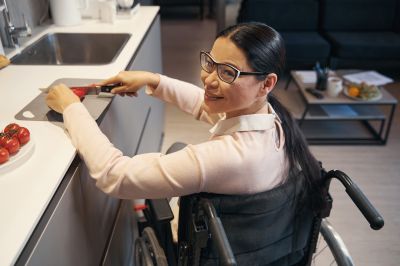
When evaluating service providers for disability renovation projects, it is important to consider their experience with similar types of work. Homeowners should look for local contractors who have a proven track record of handling projects that match the specific needs of accessibility modifications or renovations. Asking about past projects or requesting examples of work can provide insight into their familiarity with the unique challenges and requirements involved in disability renovations. This helps ensure that the chosen professional understands the scope and nuances of the work, potentially leading to a smoother renovation process.
Clear, written expectations are essential when comparing local service providers. Homeowners should seek detailed descriptions of the scope of work, materials, and any relevant processes to avoid misunderstandings. A reputable contractor will be transparent about what is included and what might be outside the agreed-upon scope. Having these expectations documented in writing can serve as a reference throughout the project, helping to keep everyone aligned and reducing the risk of surprises or disputes down the line.
Effective communication and reputable references are key factors to consider when selecting local contractors. Pros who maintain open, responsive communication can help homeowners feel more confident about the process and address questions or concerns promptly. Additionally, seeking references from previous clients or reading reviews can provide insights into the contractor’s reliability and professionalism. While the site introduces homeowners to local options, it is important to remember that the actual renovation work is performed by qualified service providers who can handle the specific needs of disability renovations.
Property owners in Seattle, WA use Disability Renovation services for practical projects around their homes and businesses. This guide focuses on everyday jobs and straightforward project options.
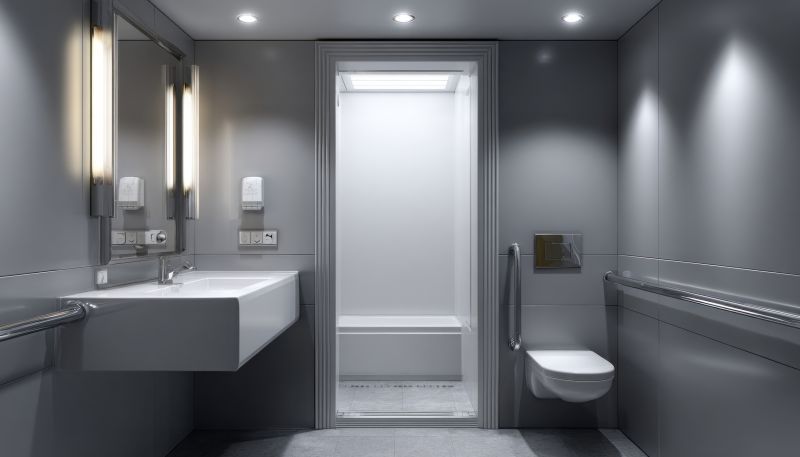
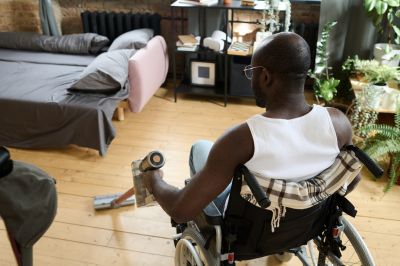
Disability renovation services are often sought by property owners in Seattle who need modifications to improve accessibility and safety within their homes or commercial spaces. Common situations include installing ramps or stairlifts, widening doorways, or adding grab bars and handrails in bathrooms. These projects help make everyday activities easier and more comfortable, especially for individuals with mobility challenges or age-related needs, ensuring that spaces are functional and accommodating.
Many property owners look for local contractors to handle these renovations because they want reliable, experienced professionals familiar with the unique building codes and standards in Seattle. Whether adapting a home for aging in place or updating a commercial property to meet accessibility requirements, these service providers can assist with a range of modifications, making spaces safer and more accessible for everyone.
What types of disability renovation services are available? Local contractors in Seattle and nearby areas offer a range of services including bathroom modifications, wheelchair ramps, stair lifts, and accessible kitchen upgrades to help improve mobility and independence.
How can disability renovation services improve safety at home? Service providers can install features like grab bars, non-slip flooring, and widened doorways to reduce fall risks and create a safer living environment for individuals with mobility challenges.
Are there options for customizing disability renovation projects? Yes, local contractors can tailor renovations to meet specific needs, preferences, and home layouts, ensuring the modifications support individual mobility and accessibility requirements.
What should I consider when planning a disability renovation? It’s important to evaluate current mobility challenges, desired accessibility features, and the overall layout of the home to determine appropriate modifications and ensure they integrate well with existing spaces.
How do local service providers handle disability renovation projects? They typically assess the home’s needs, recommend suitable modifications, and execute the work with attention to safety, functionality, and accessibility standards tailored to each client’s situation.
Bathroom Accessibility Upgrades - Local contractors can help install walk-in showers, grab bars, or lowered sinks to make bathrooms safer and more accessible.
Main Entrance Modifications - Service providers can assist with ramp installations or threshold removals to improve wheelchair access at entryways.
Kitchen Renovations for Mobility - Local pros can adapt kitchen layouts with lower countertops and accessible storage options for easier use.
Home Entryway Improvements - Contractors can add features like wider doorways or non-slip flooring to enhance safety and ease of movement throughout the home.

If you are thinking about Disability Renovation for a property in Seattle, WA, this guide is meant to help you understand the work, the typical project types, and how different options might fit your plans.
When you are ready, you can use the quote form on this page to share a few details about your project. From there, local pros can review the basics and respond with options that match what you have in mind.



